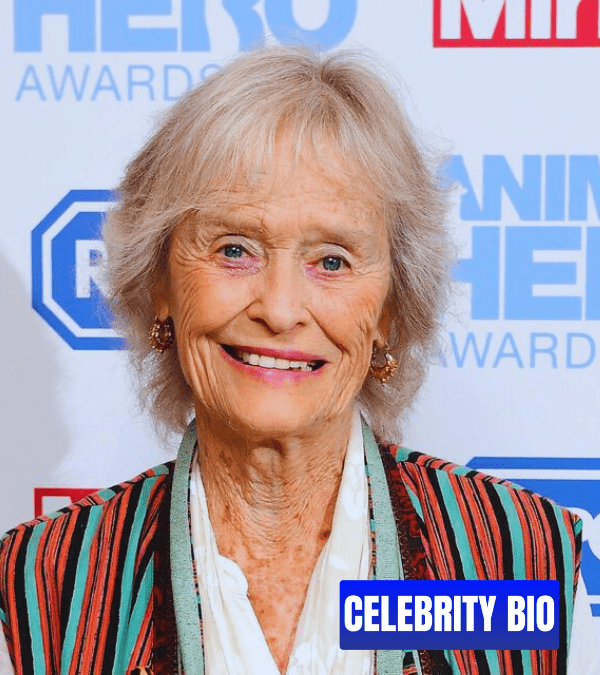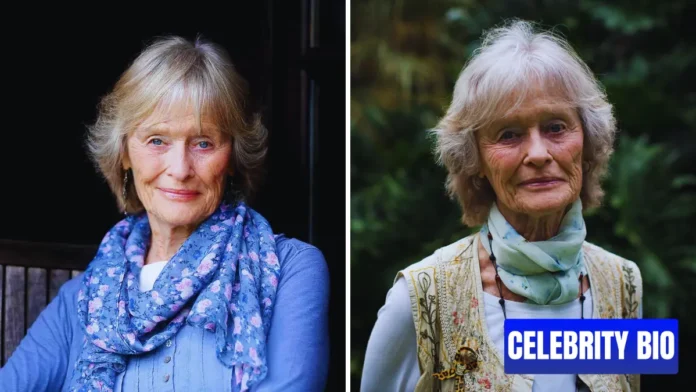Introduction
Virginia McKenna is not only one of Britain’s most beloved actresses but also a voice of conscience whose influence has stretched far beyond the world of entertainment. For many, her name is forever tied to the 1966 film Born Free, in which she and her husband, Bill Travers, brought the extraordinary story of Elsa the lioness to life. Yet this was just the beginning of a journey that would transform McKenna from a celebrated film star into a passionate advocate for wildlife.
Her career reflects the golden age of British cinema, while her activism stands as a reminder of the power of art to change lives. With a legacy spanning decades, Virginia McKenna embodies grace, courage, and determination—qualities that have made her a national treasure. This article takes you through her fascinating life story, her rise to fame, her commitment to animals, and the lasting cultural impact she continues to hold.
Early Life and Education
Virginia McKenna was born in London in 1931, a time when Britain was on the cusp of enormous cultural and political change. Raised in a family that valued creativity and the arts, she developed a deep appreciation for performance from an early age. When the Second World War broke out, her family moved to South Africa for safety, and it was there that her passion for drama began to take shape.
Upon returning to the UK, McKenna attended the Central School of Speech and Drama in London, an institution that shaped many of the country’s leading actors. This formal training gave her not only the technical skills to thrive in theatre and film but also the discipline to pursue a demanding career in a male-dominated industry.
First Steps into Acting
McKenna’s career began modestly with small theatre roles, but it was clear from the start that she had a natural presence. Her ability to convey emotion without overstatement marked her out as a performer destined for larger stages. In the early 1950s, she began to transition into film, earning minor roles that gradually introduced her to wider audiences.
Her breakthrough came in 1956 with A Town Like Alice, a powerful adaptation of Nevil Shute’s novel, for which she won the BAFTA Award for Best Actress. The role not only showcased her emotional depth but also cemented her as one of the most promising talents of her generation.
Breakthrough Roles in British Cinema
During the late 1950s and 1960s, Virginia McKenna became a familiar face on screen. She starred in a series of successful films, including The Cruel Sea (1953), Carve Her Name with Pride (1958), and Ring of Bright Water (1969). Each role highlighted her versatility—whether portraying wartime resilience, romantic strength, or quiet determination.
What set McKenna apart was her ability to bring authenticity to her characters. At a time when many actresses were confined to stereotypical roles, she embodied women with depth, courage, and individuality. Critics praised her performances for their understated brilliance, and audiences found in her a relatable figure who mirrored both vulnerability and strength.
Virginia McKenna and Born Free
No account of Virginia McKenna’s career would be complete without discussing Born Free. Released in 1966, the film told the true story of Joy and George Adamson, a couple who raised an orphaned lion cub named Elsa in Kenya and successfully released her into the wild.
McKenna starred alongside her husband, Bill Travers, and their chemistry brought authenticity to the screen. The film was an international success, winning critical acclaim and bringing global attention to the plight of African wildlife. For McKenna, however, the film was more than just another role—it was a turning point in her life.
Working with lions on set profoundly affected her. She later described how the experience awakened a lifelong passion for animal welfare, as she witnessed first-hand the challenges of keeping wild creatures in captivity.
Partnership with Bill Travers
Virginia McKenna personal and professional life was deeply intertwined with Bill Travers, her husband and frequent co-star. Their partnership extended beyond the screen to a shared mission for wildlife protection. Travers, like McKenna, was profoundly moved by their time filming Born Free, and together they became advocates for animal rights.
Their relationship was one of mutual respect and shared purpose. While Travers was often the driving force in logistics and campaigning, McKenna brought visibility and public support through her celebrity status. Together, they would lay the foundation for a movement that combined art, compassion, and activism.
Transition from Acting to Activism

Though McKenna continued to act after Born Free, her focus gradually shifted towards campaigning. By the late 1970s, she was dedicating more of her time to wildlife conservation. She and Travers were particularly outspoken against the exploitation of animals in circuses and zoos, arguing that wild creatures deserved to live freely in their natural habitats.
This transition was not without sacrifice. At the height of her career, McKenna could have continued to dominate the British film industry, but she chose instead to channel her energy into causes that mattered more deeply to her. It was a bold decision, but one that ultimately defined her legacy.
Founding the Born Free Foundation
In 1984, McKenna and Travers, together with their son Will, founded what would later become the Born Free Foundation. The charity’s mission was simple yet profound: to ensure that wild animals are treated with compassion and respect, whether in captivity or in the wild.
The foundation campaigned against the use of wild animals in circuses, lobbied for better zoo standards, and worked tirelessly to rescue animals from inadequate conditions. One of its most high-profile successes was the relocation of elephants and big cats from captivity to sanctuaries, giving them a chance to live out their lives in dignity.
Today, the Born Free Foundation remains a leading voice in animal welfare, a testament to McKenna’s vision and determination.
Virginia McKenna’s Influence on Wildlife Conservation
McKenna’s activism has had a profound impact on public awareness. At a time when conversations about conservation were far less mainstream, she helped bring these issues to everyday households. Her fame gave her a platform, but it was her sincerity that won people over.
She became a prominent speaker at conferences, an advocate in the media, and an inspiration to countless animal welfare groups. Many credit her with shaping a generation of conservationists who grew up watching Born Free and were inspired to follow in her footsteps.
Awards, Recognition, and Cultural Legacy
Over the decades, Virginia McKenna has received numerous awards, not only for her acting but also for her activism. She was awarded the OBE (Order of the British Empire) in 2004 for her services to wildlife conservation and the arts.
Her cultural legacy is twofold: on one hand, she remains a shining star of British cinema’s golden era; on the other, she stands as a pioneer in linking celebrity influence with meaningful activism. Few figures have managed to bridge these worlds so effectively.
Personal Reflections and Later Life
In her later years, McKenna has continued to be active in the causes she cares about. Though she has stepped back from acting, she remains a guiding figure in the Born Free Foundation. Her voice is still heard in campaigns, and her personal story continues to inspire both young and old.
She has also authored books, reflecting on her career, her activism, and her vision for a more compassionate world. These works offer a deeply personal glimpse into her journey, revealing the strength and humility that define her character.
Virginia McKenna in Modern Context
In today’s world, where conversations about animal welfare, conservation, and climate change are increasingly urgent, Virginia McKenna’s legacy feels more relevant than ever. The issues she championed long before they were fashionable—ending animal exploitation, protecting endangered species, and advocating for compassion—remain at the forefront of global debates.
Her life story serves as proof that art can be more than entertainment; it can spark movements, inspire change, and leave a lasting imprint on society.
Conclusion: A Lasting Inspiration
Virginia McKenna’s journey from acclaimed actress to pioneering activist is nothing short of extraordinary. Her performances, particularly in Born Free, captivated audiences, but it was her decision to devote her life to animal welfare that defined her as a true icon.
Her legacy lives on through the Born Free Foundation, in the lives of the animals it has rescued, and in the countless people she has inspired. For anyone seeking an example of how passion and purpose can transform the world, Virginia McKenna stands as a shining example.
FAQs
What is Virginia McKenna best known for?
She is best known for her role in Born Free (1966), which also inspired her lifelong activism for animal welfare.
What is the Born Free Foundation?
Founded in 1984 by Virginia McKenna, Bill Travers, and their son Will, the Born Free Foundation campaigns for the protection of wild animals and opposes their exploitation.
Did Virginia McKenna stop acting after Born Free?
She continued acting in films and theatre but gradually shifted her focus towards activism, dedicating much of her life to conservation.
Has Virginia McKenna received awards for her activism?
Yes, she was awarded the OBE in 2004 for her contributions to wildlife conservation and the arts.
Is Virginia McKenna still alive?
Yes, Virginia McKenna remains an active voice in conservation and continues to support the Born Free Foundation.

